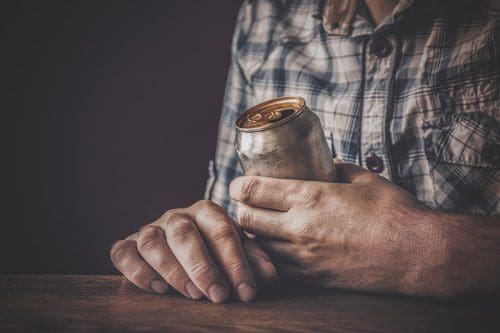
Why Binge Drinking Is Dangerous
Binge drinking can increase a person’s risk for developing a variety of health problems and increases one’s risk for self-harm or harming others. Binge drinking can affect judgment and memory. Drinking large amounts of alcohol in a short period of time can have devastating effects on one’s health. The National Institute on Alcohol Abuse and Alcoholism notes that alcohol has a direct impact on the immune system and that, “Excess alcohol consumption may lead to immune deficiency, causing increased susceptibility to certain diseases. Life-threatening complications of alcoholism such as liver disease and liver failure may have a component of autoimmunity, in which the immune system turns on the body’s own tissues.”
There are numerous health problems related to binge drinking. These include:
- Sexually transmitted diseases
- Alcohol poisoning
- High blood pressure
- Stroke
- Heart disease
- Liver disease
- Colon or liver cancer
- Cancers of the mouth or esophagus
In addition, binge drinking puts one at a higher risk for death due to the following:
- Car crashes
- Homicide
- Suicide
Common Signs of Binge Drinking
Binge drinking has a variety of warning signs to be aware of. Some of these are the same warning signs of alcoholism. Warning signs include:
- You only drink on certain days, such as the weekend or your days off from work, but when you do drink, you consume large amounts of alcohol in a short period of time.
- When you drink, you take risks you otherwise would not take and are often called a daredevil. You might engage in dangerous activities such as reckless driving, gambling, unsafe sex, or fighting.
- You mix drugs or prescription medication with alcohol.
- You black out when drinking.
- Drinking interferes with other responsibilities and has a direct impact on those around you.
When Binge Drinking Turns Into Addiction
Binge drinking can turn into a substance abuse disorder or addiction to alcohol. When you are no longer able to control your drinking or limit yourself to a certain number of drinks, there is a definite problem to address. When you are obsessing over drinking and letting it interfere with your daily life and responsibilities, you may have crossed from binge drinking into a binge drinking addiction.
Questions to Ask Yourself
If you or a loved one wants to know if you need help with alcohol addiction, you can begin by asking yourself the following questions:
- Are you drinking more than you did in the past?
- Has your tolerance for alcohol increased?
- Do you drink alone or hide your drinking from others?
- Have you tried to quit drinking or reduce your drinking without success?
- Have you gotten in trouble with the law or at work due to your drinking?
- Has drinking caused problems with your family or friends?
- Do you black out after a night of drinking and don’t remember what happened?
- Do you ever have withdrawal symptoms such as vomiting, headache, tremors, or anxiety?
If you have answered yes to many of these questions, you may have a substance abuse disorder and may need to seek treatment.
Help Is Available
If you or a loved one is suffering from an alcohol addiction or substance abuse disorder, help is available. Twin Lakes Recovery Center is a leading Atlanta-area addiction treatment center. We have board-certified professionals on staff to provide a variety of therapeutic methods such as individual, group, and family programming. We offer drug and alcohol detox services, inpatient residential treatment, intensive outpatient treatment, and continuing care.
At Twin Lakes Recovery Center, we strive to help you move beyond your addiction and regain control of your life to create a brighter future. Help is available 24/7. To find out more about what programs Twin Lakes Recovery Center has to offer, contact one of our addiction specialists to set up a confidential consultation by filling out our convenient online contact form.




